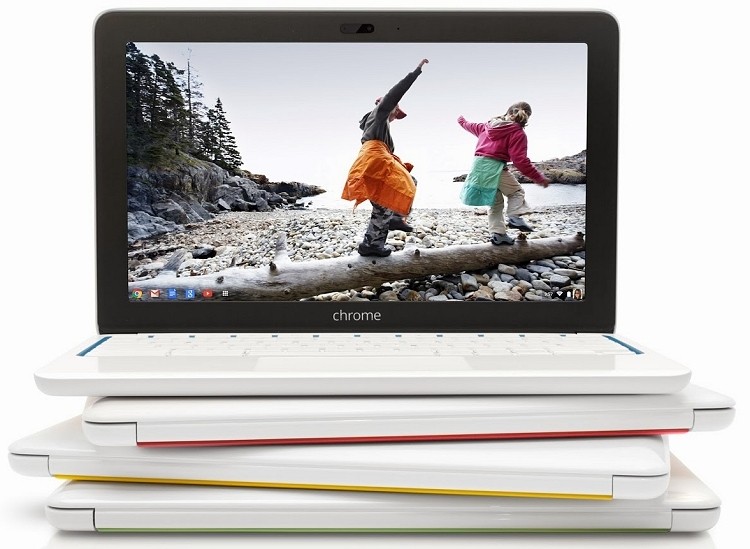>
>So your argument is that Apple is bad for being vertically-integrated, but Microsoft is wonderful because, they are going that way now too? Let me know how surprised you were when Microsoft bought Nokia, and when Microsoft buys a newly-taken-private Dell and tries to turn into Apple Mk. 2 across their entire product line. And stop selling OEM licenses to the public in all likelihood.
My argument is simple. Apple is taking away market share -- in the personal computing world -- every year. Their brand is getting stronger and stronger. Microsoft needs to compete. To do so, they need to offer a product that delivers the precise Windows Experience they want. In terms of ease-of-use, QUALITY, and other factors.
Of course the Metro OS has a long way to go. I agree the Windows Experience is of course mostly the OS, but I am saying the hardware can definitely affect the OS' performance. Some of these MFG's make real cheap and crappy PC's and it gives a bad WINDOWS impression. The cool thing, MSFT actually allows these MFG's to sell their software. I don't know what mandates that they have to do it though? Oh wait they got nailed with an anti-trust law suite over pairing Windows with IE...if they couldn't do that (pair windows with IE), obviously they couldn't do what Apple does and control the entire supply chain.
What does that mean? Because they were always on the brink of being a monopoly, they had to build out their OEM network to give others a piece of the pie. So we have grown up in a world where we are used to Microsoft not directly making the devices that runs its OS. However, times have changed and there are more and more OS' coming into fruition every year.
They should keep selling their OS' to other MFG's so that they can try and capture markets for PC's that MSFT is not going after. I am not saying cut out any of the OEM's, but expecting Microsoft to not have a physical product in this competitive space is just foolish.
Times have changed and now Microsoft needs to continue to compete instead of falling behind.
>So anyway, what part of Ballmer promising not to shaft OEMs in the retail space, and then going and doing exactly that, behind their backs while they had their own products in the manufacturing pipe, was a good idea for anyone? Other than Ballmer's next quarterly earnings report to shareholders?
Agreed it was a stupid move by Ballmer. He is on his way out and not the future of MSFT.
>Yes, and perhaps subsidizing licenses to make Windows less of a money sink for OEMs, rather than lumping them with both the full cost of the OS and the cost of the extra hardware required to run it versus what IOS or Android requires, might have worked out better for everyone, even Microsoft had they given the Metro apps library time to mature.
You are comparing apples versus oranges. You cannot compare Windows licenses for desktop PC's to tablet and smart phone OS licenses. Tablets/smart phones are not desktop or laptop computers, don't mix the two. I can't actually be productive at work, game, or power surf the web on a tablet/phone. The Android OS is much less complex and robust than Windows.
>I know Techspot is full of the MS/Intel/Nvidia-loving crowd, but OEMs do actually desire to ship desirable, useful products people want to buy. They've been hamstrung in the Windows space by both Microsoft and Intel for years dictating how to price and sell product, and have now turned to Android and ARM where, surprise surprise, they can make money. Meanwhile Intel and Microsoft are being shown up for what they always were. So if everyone has bitter memories of the crap sold as PCs in the last few years, perhaps simply blaming the OEMs is short-sighted?
I am not saying that they don't desire to make quality products. However, because of how they can buy MSFT's OS and then pair it with crap hardware, the end-user who receives that computer is going to think poorly upon MSFT and that MFG. You can't buy cheap, low-end Apple products. They offer a consistent experience all across the board and that is why they are gaining so much ground.
Surprise, surprise, that is what Android is doing as well. The difference is they have not released their chromeOS and so we can only compare MSFT to Google in the Phone/Tablet space.
>Yep, and I'd rather be the head of Asus right now, shipping Nexus 7's in volume for Google, than Ballmer's replacement.
I'd rather run the company that controls the business world. The business world NEEDS technology, and Microsoft offers world class technologies to help businesses compete. I'd rather run the company that Asus, Acer, HP, and Dell all complain to for controlling the entire supply chain.
